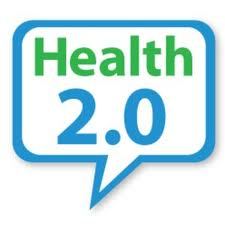Health 2.0 for Everyone?
Medical Pharmaceutical Translations • Apr 20, 2009 12:00:00 AM

In the U.S., the trend is toward becoming a super self-educated patient – spending time in chat rooms and on health-related websites. But is the Health 2.0 revolution really available to everyone? What about those who do not speak English as a first language? The answer is overwhelmingly no.
Pharmaceutical companies lead the way when it comes to understanding the diverse U.S. healthcare market. They translate patient information brochures and disease awareness campaigns. The do market research and advertising in Spanish and Chinese. But most independent health education sites are sadly monolingual.
WebMD is a leading source of medical information and news. While none of the disease pages or drug information is offered in any language but English, they do offer Noticias Breves de Salud, a Spanish-language health news page.
Other sites, like RevolutionHealth, PatientsLikeMe, EveryDay Health and Wrong Diagnosis offer only English-language resources. Spanish health information is, however, available at Medline Plus from the National Institutes of Health and at FamilyDoctor.org.
Many non-English speakers have turned to sites like YouTube, where there is an overwhelming amount of health information in almost any language you can imagine. The problem here is there is no vetting of the accuracy of the information provided. U.S. Spanish speakers can go to international sites like that available from www.pulsomed.com in Spain. They have a site called Tu Otro Medico (Your Other Doctor; www.tuotromedico.com) that provides Spanish only content.
Some health information sites are resorting to posting user-translated information on their sites. This should be done with extreme care as the overall accuracy of the information diminishes when translations have errors or inaccuracies. However, allowing users to post questions in their native language is indeed the beginning of a truly multilingual, diversity-friendly website.
Perhaps the Health 2.0 sites worry, because their content is continuously changing, that making it available in other languages would be too much of a burden. The fact of the matter is, with the content management systems currently available, translation memory (TM) can be leveraged to allow for flexible, real-time translation of content that is constantly developing.
#webmd #translations #health20 #patientslikeme #aiatranslations #patientaccess
